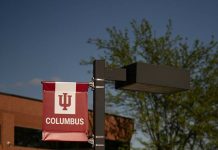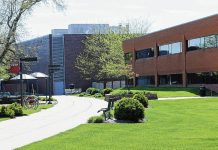Although he would likely protest the label, Harry McCawley was in real terms an educator.
Having known Harry for a number of years as a local history buff and being a Columbus native myself, I enjoyed Harry’s newspaper stories of colorful people and events, many of which I recalled as part of my early life.
So, when Harry called me in 1994 at my work at Columbus East High School to find a teacher to lead a student research project, I could tell he was taking his passion for history to a new level of involvement. I told him I would be interested in how the project might work. A few days later he and then-editor John Harmon came to East to outline the envisioned collaboration between The Republic, the Bartholomew Historical Society and a class of 11th grade English students.
The project would challenge 26 to 30 students divided into groups of three or four, with the help of adult mentors, to identify local stories that were an important part of Columbus’ earlier decades when we were a smaller town with close-knit families with common — although not always squeaky clean — values.
My role was to facilitate the work by getting approval to have students leave school (with supervision), find their topic in the archives of the newspaper clip files and the records of the Bartholomew County Historical Society. We had no luxury of Internet searching in those days. The major piece was to locate interview subjects who would give the resulting papers the real flavor of journalistic investigation. The culminating event would be a community presentation of the research.
We all agreed to take the risk and jump in with vigor. Harry was the resource for any void we needed to fill in. He was a magician in finding people who knew first-hand accounts of the history the students were chasing down. He sent them to Sam Simmermaker to get the details about the building of Memorial Gym, to Henry Blessing to relate the era of the Francis Comfort Children’s Home, to Naomi Jackson to tell what she as a block captain did to enforce blackouts during World War II air raid drills. So many knowledgeable people told their personal stories to a wide-eyed, often incredulous generation that Harry wanted to educate.
For four years between 1994 and 1997, Harry, along with colleagues at the newspaper, the Historical Society, a supportive Columbus East Principal Phil Houston and scores of storytellers in our town gave a whole crop of young learners an experience they could not get from a book in the classroom. Harry’s idea to capture local history by loosening the bonds of traditional learning showed us he knew how to educate.
– Cheryl Zuckschwerdt-Ellsbury, Columbus




